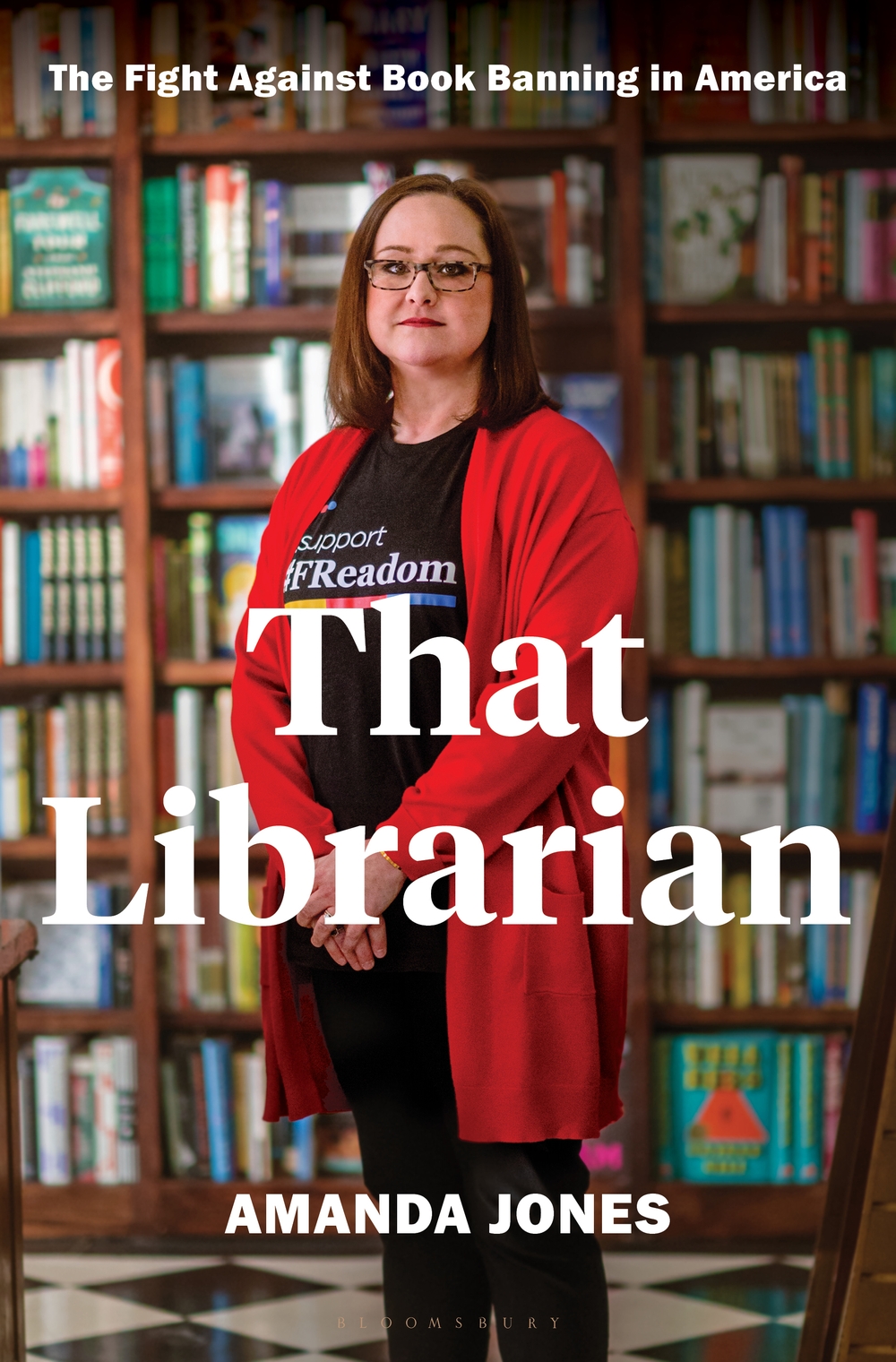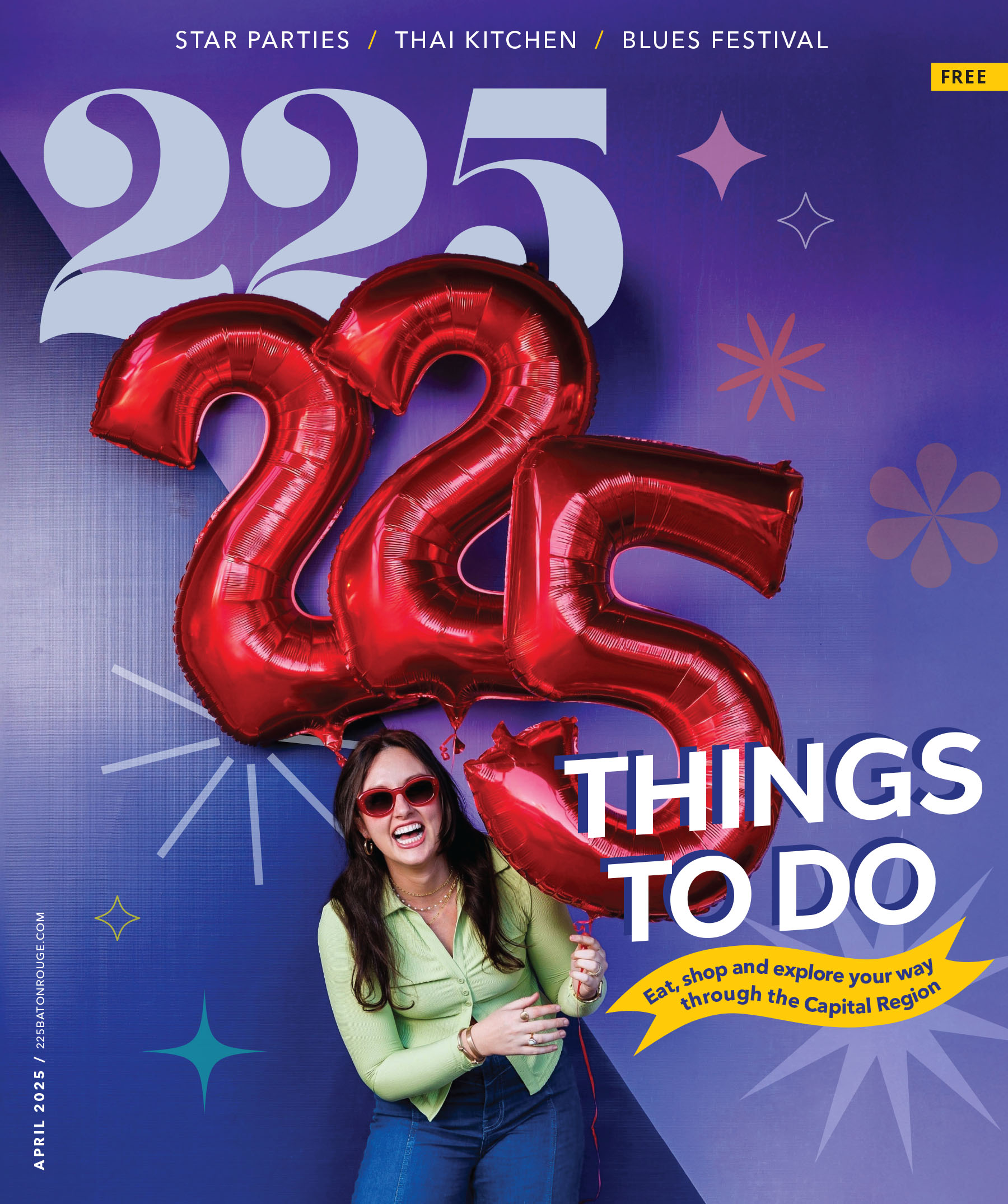Few educators have experienced the emotional highs and lows of Livingston Parish middle school librarian Amanda Jones. In 2020, she was named Louisiana School Librarian of the Year, and in 2021 she earned national accolades as a School Library Journal School Librarian of the Year.
But in 2022, Jones found herself at the center of a national controversy on library censorship and the subject of online vitriol, threats and harassment. The rollercoaster ride, which has also included a public shoutout from Oprah Winfrey and an ongoing defamation lawsuit (in which she’s asking for $1 and an apology), is described in Jones’ new book, That Librarian: The Fight Against Book Banning in America, which officially hits shelves Aug. 27.
Jones will hold local book launches at Cavalier House Books in Denham Springs on Aug. 24 and at its new location in Lafayette on Aug. 25. She’ll also be at the Louisiana Book Festival on Nov. 2. We checked in with the veteran educator about what life has been like over the last two years, and how she overcame public shame to become a national advocate against book banning. This interview has been edited for brevity and clarity.
|
|
|

Tell us about your background as an educator.
This is my 24th year. I work at the same middle school that I attended. So did my husband, my child and everyone in my family. I just love the kids. I was a former reading teacher, but I’ve always been a certified school librarian. When our former librarian retired, I asked to be the school librarian. I love connecting kids with the perfect book to encourage them to become readers.
It’s such an art, connecting someone to the right book.
It can be tricky, yeah, but at this point, I’ve gotten pretty good at it. I always like “home run” books, or books that are going to hook a kid into becoming a lifelong reader. But really, it’s just finding out what they’re interested in, whether it’s sports or what kind of movies they like, or their hobbies. Once they find it, it opens up a whole new world.
Were you a big reader as a kid?
My mom is a former kindergarten teacher, and she raised us to be readers. She took us to the library every week, and always bought us books. I’ve had a Livingston Parish public library card since 1983.
What were your top three favorite books as a kid?
Oh gosh, that’s hard. Little Women by Louisa May Alcott. I named my daughter after the main character, Jo. I also loved Judy Blume, especially Are You There God? It’s Me, Margaret. And I was really into Beverly Cleary. I loved all the Ramona books.
You were named School Library Journal’s 2021 School Librarian of the Year for creating innovative programs to keep kids reading during the pandemic. Tell us about some of those programs.
Well, I thought if the kids can’t go out in the world, I’m going to bring the world to them. So I started doing virtual field trips to places like Rome, London and Tanzania. I would dress up in hats and livestream, and the kids and people in the community would join. I also hosted virtual author visits with some big name (children’s book) authors like Alan Gratz and Rita Williams-Garcia. My students interviewed them.
That was a high point in your career, but just a year later, things took a turn. Tell us about speaking at the July 2022 Livingston Parish Library Board meeting and the aftermath.
I had been keeping up with censorship issues happening in the Lafayette Public Library System, and I saw an agenda item on our Livingston Parish Library Board meeting that said, ‘Book Content and Signage.’ I thought, ‘They’re going to try to censor something,’ so I went as a private citizen and spoke about censorship in general. Four days later, I woke up to an online smear campaign saying I spoke about some book that I had never even heard of. It wasn’t even a title that was talked about at the meeting. They were posting pictures of it, and it is pretty graphic. And they were like, ‘She wants to give this book to kids.’ And I was like, ‘I’ve never even heard of that book.’ They published my full name and address and said that I was a groomer and promoting pornography. It affected not just me but my family. People believed it—and still believe it two years later.
What was the impact?
It was very difficult. I ended up losing 50 pounds from stress and lost chunks of my hair, and I had debilitating panic attacks. I got so anemic from not being able to eat that I ended up having other health problems and had to have an emergency hysterectomy. The first year, I was crying every day. I was in a very low place, but I got into some intense therapy and anxiety medication, and I got better. As an educator, we teach our students that if they’re bullied, to report it, and they should seek help. And so that’s what I did. I filed three different police reports, but nothing was done about them. But I wanted to stand up for myself, because that’s what we teach the kids to do. Writing was something I did in therapy. I was approached by a publisher, and it evolved into a book.
You sued for defamation, but the case was thrown out, citing your status as a public figure. Will you appeal?
We appealed in the First Circuit, but they tried to get out of it on a technicality, saying we didn’t submit the appeal in time. One judge said we did, and that we were right. Two judges said we didn’t. So, we just filed paperwork last week to the Louisiana Supreme Court, so it’s headed there.

What’s your position on library censorship?
I think there are a lot of lies that get posted about this. Everybody’s like, ‘Oh, well, if they don’t want to ban books, then they’re for all books everywhere.’ As a professional librarian, I use professional reviews about where we place books in the library. So, like, I don’t have Stephen King in my school library because it’s not rated for this age group. And just like in the public library, I don’t advocate for all books to be in all places. There’s an adult section, there’s a teen section, and there’s a children’s section, and the book should be in the appropriate place. What I said when I went to the meeting was that we already have policies in place. We have challenge policies, where anybody in the community can challenge a book or where it’s located.
|
|
|
At the heart of it, libraries are for everyone. We’re seeing this push to marginalize the LGBTQIA community and our BIPOC communities. I am a straight, white, cisgender woman, and I think that there’s privilege in that. When you have a position of privilege, and you have a platform like winning a national School Librarian of the Year (award), if you don’t use it for good, it’s a waste of a platform, a waste of privilege.
I’m doing what I was raised to do as a Southern Baptist, Republican Christian—to do the right thing.
What did you want to accomplish by writing That Librarian?
Number one, I wanted to get the truth out about what was happening to me, and I wrote about other librarians that it’s also been happening to. There are hundreds across the country. And I wrote it so that people will know that these are First Amendment issues. These are constitutional issues. I wanted people to know about library policies that are already in place. I wanted to basically explain it. I did it to help myself, the only way I knew how, because I’m not going to get online and trash people on social media like they’ve done to me. So I wrote a book, and if people read it, great. If they don’t, that’s okay. I’m proud of writing it. It’s gotten two starred reviews from professional journals, which is a huge thing for librarians.





